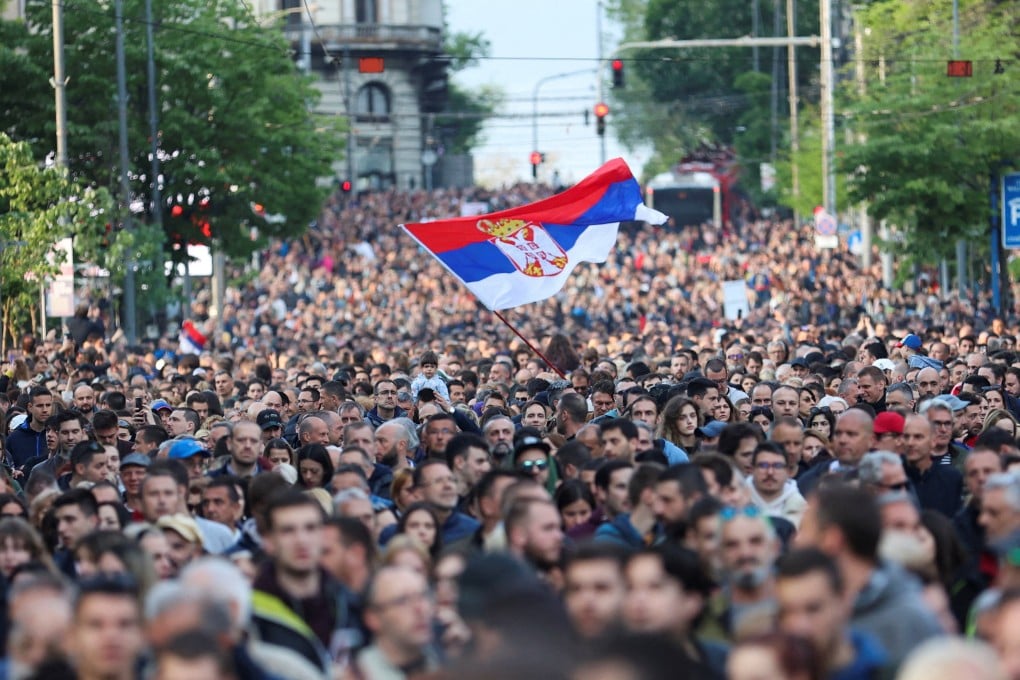Advertisement
Violent Serbian reality TV targeted after shootings: ‘I want it banned’
- Underworld figures, war criminals and mentally unstable people are regularly cast in series known for gratuitous levels of violence
- Thousands have protested calling for a ban on violent programming, following back-to-back shootings in which 17 people died, including children
Reading Time:3 minutes
Why you can trust SCMP

Serbian TV is a diet of women being beaten and threats issued at gunpoint. But this is not fiction. It is reality shows where, among others, infamous mobsters and war criminals are the stars.
The shows have been widely popular for years but have recently found themselves in the cross hairs of an enraged public following two mass shootings that protesters say were in part rooted in a culture of violence fanned by the media.
Drunken arguments, gossip and the occasional fights have long been a staple of reality TV across the globe.
Advertisement
But in Serbia, the programmes have taken the genre to even greater lows.
Underworld figures, war criminals and the mentally unstable are regularly cast in series known for gratuitous levels of violence.
In 2021, around a dozen cast members watched impassively while a convicted felon strangled a woman unconscious on the show Zadruga, one of the most popular reality series in the Balkan country.
Advertisement
Advertisement
Select Voice
Select Speed
1.00x
